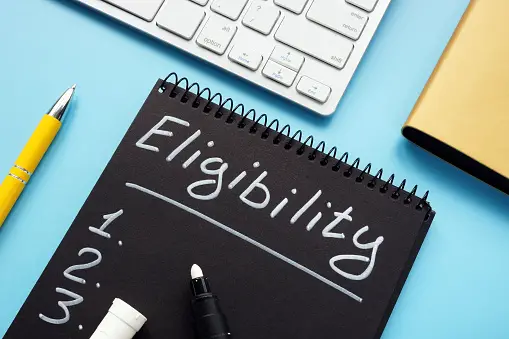Eligibility requirements for government grants vary depending on the specific grant program and the purpose of the grant.
Government grants are a type of financial assistance provided by the government to individuals, organizations, and businesses to support various initiatives and projects. However, to be eligible for a government grant, there are certain requirements that must be met.
So, what are the eligibility requirements for government grants?
Here are some of the common eligibility requirements:
- Citizenship or Residency: In many cases, government grants are only available to citizens or permanent residents of the country. Some grants may also require you to live in a specific region or state.
- Age: Some grants may have age restrictions, such as only being available to people over 18 years old.
- Purpose of the grant: The purpose of the grant must align with the goals and objectives of the grant program. For example, if the grant is meant to support small business development, you must have a small business that you are looking to grow or start.
- Income: Some grants may have income requirements, such as only being available to individuals or households with a certain level of income.
- Background: In some cases, grants may require you to have a clean criminal record or to have no outstanding debts.
- Qualifications and Experience: Depending on the grant program, you may need to have certain qualifications or experience related to the field or project you are seeking funding for.
Practical example of a government grant for small business development.
To be eligible for this grant, you must:
- Be a citizen or permanent resident of the country.
- Be 18 years or older.
- Own or plan to start a small business that operates within the country.
- Have a clear and feasible business plan.
- Have a good credit history and not have any outstanding debts.
- Demonstrate financial need for the grant funds.
By meeting these eligibility requirements, you can increase your chances of being approved for the grant and receiving the funding you need to grow your small business.
Other practical examples of government grants and their eligibility requirements.
- Government Grant for Affordable Housing: If you’re looking to build or renovate affordable housing, you may be eligible for a government grant for affordable housing. To be eligible, you must:
- Be a registered nonprofit organization or a local government.
- Have experience in developing and managing affordable housing.
- Have a clear plan for developing or renovating the affordable housing units.
- Demonstrate a need for affordable housing in the community you plan to serve.
- Government Grant for Women-Owned Businesses: If you’re a woman who owns a business, you may be eligible for a government grant to help grow your business. To be eligible, you must:
- Be a woman who owns at least 51% of the business.
- Have been in business for at least one year.
- Have a clear plan for using the grant funds to grow your business.
- Meet specific revenue requirements, depending on the grant program.
- Government Grant for Renewable Energy: If you’re looking to install renewable energy systems in your home or business, you may be eligible for a government grant for renewable energy. To be eligible, you must:
- Be a homeowner or a business owner.
- Have a clear plan for installing a renewable energy system, such as solar panels.
- Demonstrate a commitment to reducing your carbon footprint and using renewable energy.
- Meet specific income requirements, depending on the grant program.
- Government Grant for Research and Development: If you’re a researcher or a scientist, you may be eligible for a government grant for research and development. To be eligible, you must:
- Be affiliated with a research institution or a university.
- Have a clear plan for conducting research or developing a new technology.
- Demonstrate a strong track record of research or development in your field.
- Meet specific grant program requirements, such as having a certain level of funding from other sources.
In each of these examples, the eligibility requirements for government grants vary, but they all have one thing in common: they require clear plans, strong track records, and demonstrated need or commitment to the initiatives or projects being supported by the grants.





Your article helped me a lot, is there any more related content? Thanks!